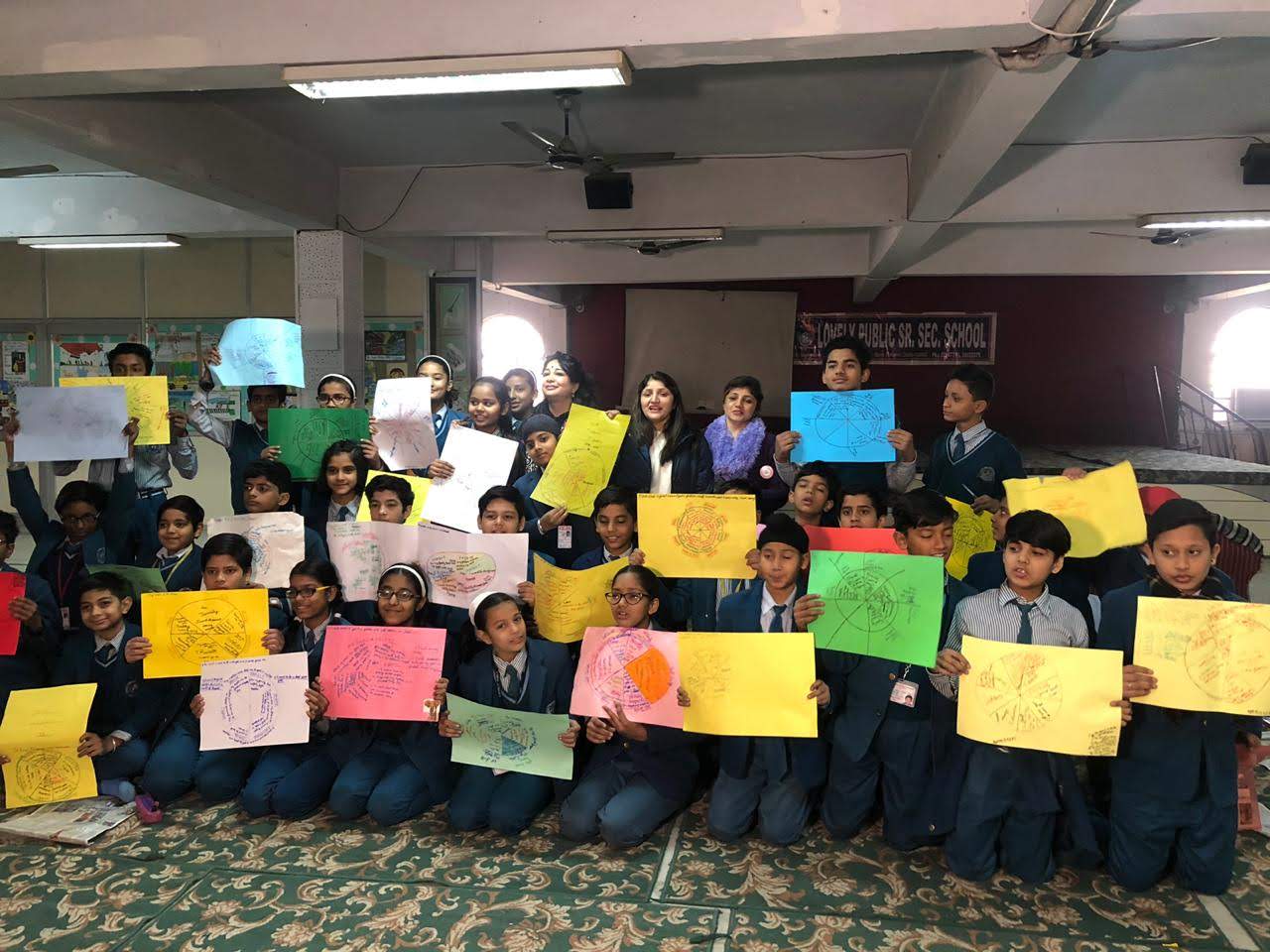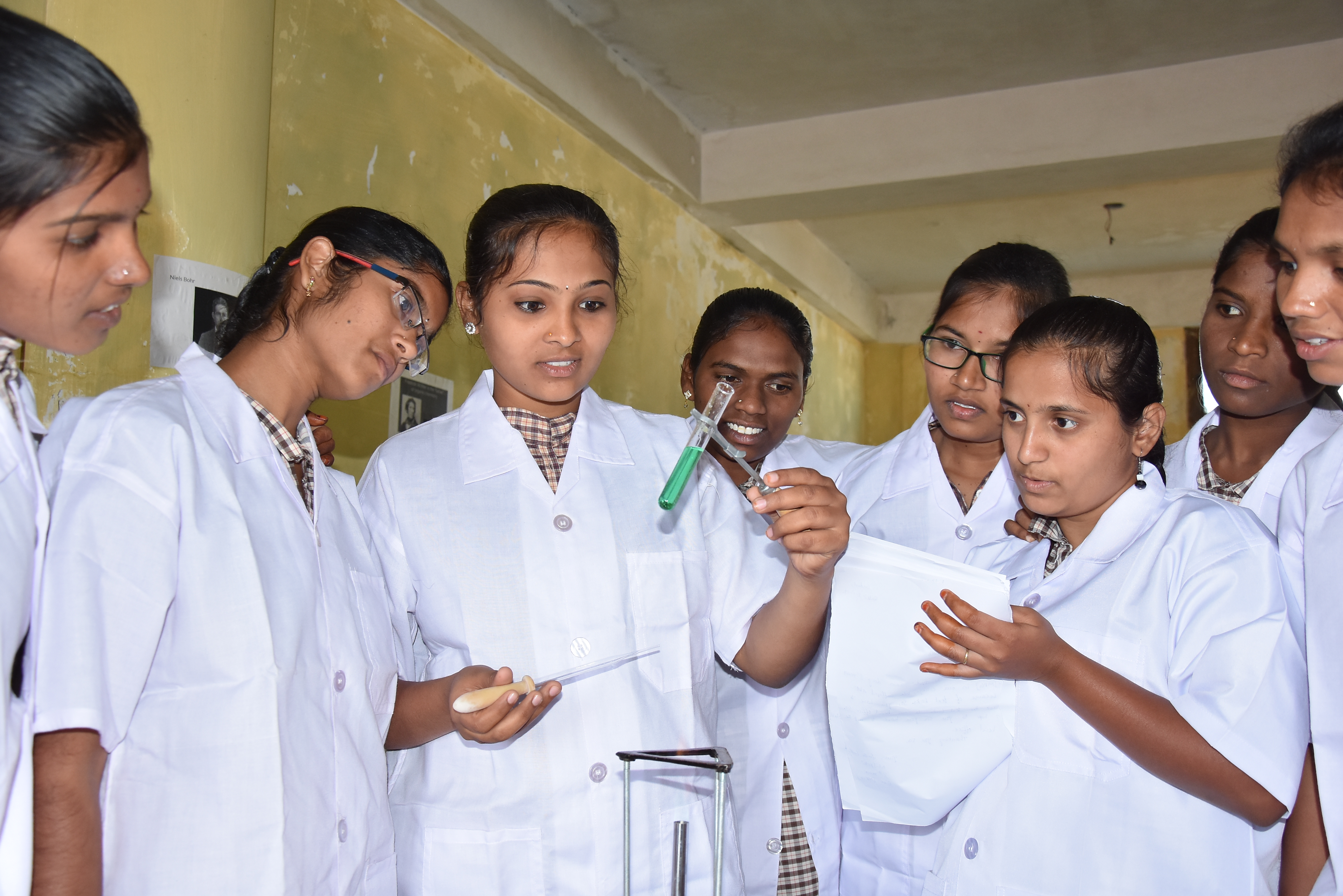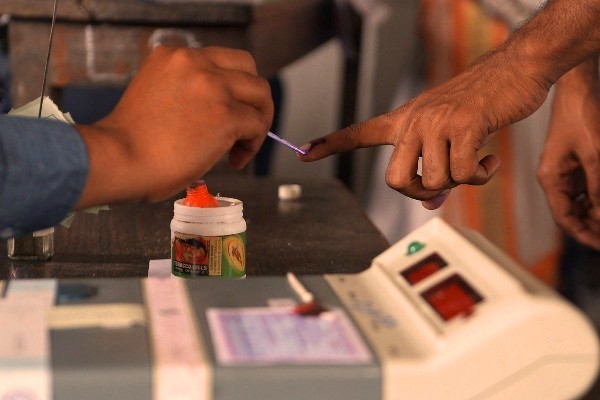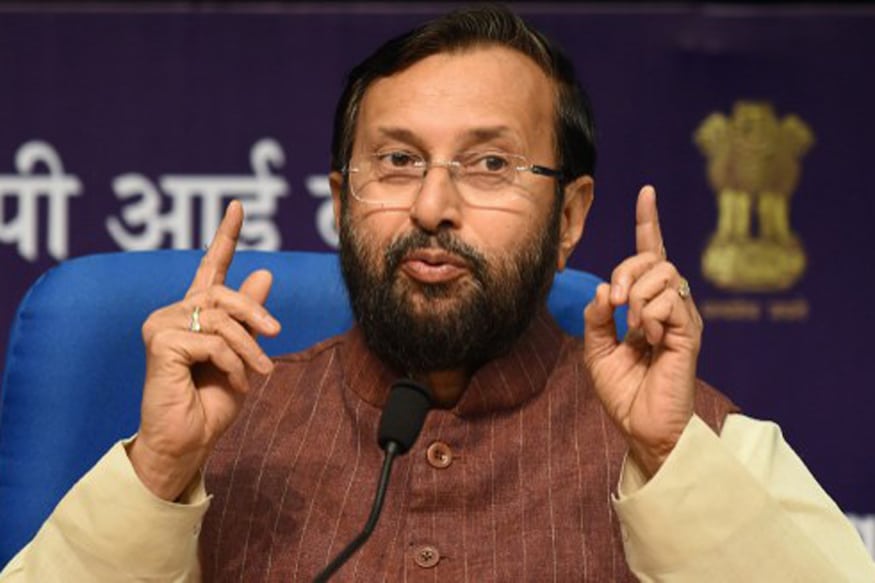Meraviglia EQ Academy organised Social Emotional Learning Programme for class 7th Students. Social and emotional learning (SEL) helps in acquiring the skills necessary to understand and manage emotions, accomplish positive goals, become empathetic towards others, build strong positive relations and be responsible for their actions and decisions. The MEQ Academy conducted four highly interactive workshops for students including Mindfulness, Goals and Vision Workshop, Emotional Literacy, and Gratitude. Mindfulness is a way to live in the present moment. In the hush-hush of life we all are living in the future, distracted and inattentive to the current moment.
Haven’t heard back from recruiter yet? Here’s why
Applicant tracking system used by the portals and companies is a tough nut to crack the job descriptions are optimised according to a certain way which only select the applications falling under its criterion, observes Aniruddh Parmar, HR Executive, SoftwareSuggest, for Elets News Network (ENN).
The never-ending rat race has been swallowing up people since time immemorial. The bitter truth is – the race is essential for the survival. The concept of the “survival of the fittest” is more applicable than ever when you are out there looking for a job. Seeking a job is a tiresome process which requires an ample amount of patience and effort. However, job-seeking has become easier than ever with many online job portals like Naukri, Indeed, etc. The biggest challenge for employers is the talent management software used by these portals.
Often, nearly half of the applications get rejected just because they are not appropriately qualified for the job. Moreover, before these applications even reach a recruiter, such software only accepts the ones which fall under a certain criteria laid out by the Applicant Tracking System (ATS).
As soon as you graduate, you start applying for the jobs which fit your criteria. What about the criteria on the basis of which you are scrutinised by the employers? Do you think you’re not paying enough attention to those factors? Find out in this list of possible reasons that could be stopping you from hearing back from recruiters:
Following up with the Recruiter
Applying for the job isn’t the only step you need to take, if you want to land yourself that dream job. One of the main reasons why applicants don’t hear from the recruiter is the lack of follow-up after they have submitted their resume. A survey done by job-hunt.org showed that 51 percent of the HR managers aren’t interested in the applicants who do not pay any heed to the follow up.
The “one-tap apply” system has more to it. Most applications don’t even reach the recruiter. It is really important to send an email to the recruiter asking about the status of your application. Companies receive thousands of applications for a single position; it is only fair to at least remind them once. Also, it shows that you’re an applicant who is actually concerned about the job enough to follow up.
Building a Professional Online Presence
Almost 37 percent of the employers believe that social media and networking sites are a strong criterion for selecting their applicants. While 11 percent of the companies who don’t yet use such sites as a parameter, they plan to do so soon. When asked why the employers need online background checks of the applicants, 65 percent of them stressed the importance of a candidate’s professional presentation on social media.
In the present era, social media plays a significant role while determining a candidate’s fit in the culture of the company. Educational qualifications and work experience aren’t the only things that matter. Recruiters want to know how a candidate would be able to adapt to the work culture. A Google search about your name can give you deep insights about how you can modify your online profiles to match your professional goals.
Optimising your Resume
Optimisation of your resume keeping in mind the appropriate keywords for items like job description or skills is an essential factor for you to get noticed. Chances are, if your resume is not optimised according to these things – you might not get selected. Descriptions of the jobs you are applying for, contain some specific keywords which are known as attributes. These attributes are tracked by the recruitment software used by companies. You should try to include these keywords in your resume or application so that it doesn’t get weeded out. For example, if you are applying for a Content Writer position and the job description has certain keywords listed in a certain order – you might want to follow the same order.
Optimising does not refer solely to keywords; it also means a properly formatted application e.g. a separate line for everything from job titles and work experience to the company in which you have been working earlier. Also, it is a good practice to make sure that your social profiles like Linkedin match your resume.
What’s the Solution?
If you are currently unemployed, don’t just jump at any opportunity. Patience is the key. Hence, always be on the lookout for a better opportunity from the earlier ones and take your own time to prepare yourself. Another important point to be noted is that you should be visible and stay updated on all your online social profiles. Stay connected with big companies, be updated about your niche, tell people about yourself through blogging.
Don’t be disappointed if you are rejected, there are plenty of fish in the sea if you’ve done your due diligence.
TSWREIS: Catering to Educational Needs of Marginalised Children
Telangana Social Welfare Residential Educational Institutions Society (TSWREIS) has been catering to the dire educational needs of Scheduled Caste (SC) children hailing from the remote rural areas of Telangana, says Dr R S Praveen Kumar, Secretary, Telangana Social Welfare Residential Educational Institutions Society, Government of telangana, in conversation with Elets News Network (ENN).
What undergraduate degree courses are offered by your institutions?

We offer a wide range of undergraduate programmes including Physical and Chemical sciences (BSc MPC / MSCs / MPCs / MECs / MPG / MES / Mae Nw and HW), life sciences (BSc BZC / MbZC / BGC / BtBC / BcZC / BCFsQc / NDZC / BCCs), Commerce (B Com Computers / Computer Applications / General / Honours / Taxation / BFI / BBA), and Social Sciences (BA HEP / HEPa / EPG / EPP / HPEml / EPaMCJ / EPS). The total number of undergraduate students currently enrolled across 30 TSWRDCs is 13,975 (I year – 6,143; II Year – 4,554: III Year – 3,278).
How is the institution helping junior college students in developing a foundation for Higher Education?
We have already established few Centres of Excellence in Junior Colleges to provide coaching for admission into prestigious institutes like IITs, IISERs, NITs, Central Universities, and Medical Schools across india. In addition to it, final year students (10+2) undergo training under “Summer Samurai-higher Education Programme”. under the programme, special coaching is provided to the selected students for admission to prestigious universities and degree colleges. in last academic year, 116 students from TSWREIS got admitted into institutions like delhi university’s Miranda house College, Hansraj College, Hindu College, Ramjas College, Shriram College of Commerce, Lady Shri Ram College for Women, St Stephens, etc. Besides, several students of TSWREIS got admitted into premier institutions like Azim Premji University, Indian Maritime University, Regional Institute of Education, IHM, and TISS.
What initiatives have been undertaken by TSWREIS to boost skill development, entrepreneurship and employability of students?
During first year of graduation, students are encouraged to join 3C programme, where they develop better communication skills, character, and confidence. during second year, students are trained exclusively on computational skills. For third year, we have a special programme called 3E, under which students are encouraged to focus on education (getting admission to premier postgraduation institutes), Employment and Entrepreneurship. The Department of Higher Education along with TSWREIS organises regular training programmes on national level entrance examinations like JEE Main, NEET, GATE, CAT etc.
Campus Recruitment Training (CRT) combined with skill building programmes are being delivered for good placements of students. Recently, we signed an Mou with Balavikasa International Centre to promote social entrepreneurship among undergraduates. Besides, TSWRDC has initiated a Beautician Course to nurture certified beauticians and Zumba and Salsa course to prepare choreographers. Along with this, we also conduct drivers’ education – DISHA (encouraging entrepreneurship), Adventurous Camps (Mountain Biking, Paragliding and skiing), athletic Winter Camp, Project Mission Code (encouraging girls or software coding), Project Finishing School (Pre-placement training) etc. For employment, Data Science Training, Civil Service Coaching, CA Foundation Training Programme, WIMAN (Women in Management), are also conducted by us to create awareness about other career options after graduation.
What are some of the innovative best practices adopted by your institutions?
To boost confidence and inculcate life skills among its students, TSWREIS conducts following programmes:
Project Mirror: speaking in front of mirrors helps students to enhance their oratory skills and confidence.
Project beyond four walls: students undergo experiential learning outside the classroom.
Youth Parliament Sessions: to make future leaders and lawmakers.
VIBRATION- Cultural Carnival: students showcase their talents in the state-level competitions.
Super Students Trophy: to promote the concept of “earn While you learn”. live lectures have been delivered via t-sat channels.
Bharath Darshan: a programme to visit famous places across India.
Vishwa Vidhyarthi Programme (International Internship): students visit foreign countries as part of cultural exchange with support of AIESEC.
Summer Undergraduate Research Fellowship (SURF): under the initiative, second year students are encouraged to get enrolled in one-month internship at national and international research institutions. We have already signed Mous with university of hyderabad; azim Premji university, Bengaluru; university of toledo, usa; east anglia university, uK; and Carleton university, Canada, in this regard.
SSB Lecture Series: We invited Shanti Swarup Bhatnagar Awardees to deliver lectures at TSRDCs.
What is institute’s vision for next five years?
Our vision is to provide good quality education to students belonging to backward sections of the society in a safe and supportive academic environment. in addition to that, we prepare students to be independent critical thinkers and global citizens of 21st century. We maintain high academic standards with a major emphasis on student and teacher empowerment programmes. TSWREIS enables students to acquire basic life skills and leadership qualities by exposure to a range of learning opportunities beyond classroom.
What reforms are needed in existing higher education ecosystem for a better future of students?
Since last few decades, students are expected to focus more on learning a concept without practical or in-depth knowledge about the same. for the existing ecosystem, a flexible curriculum is needed with a range of elective courses. Any undergraduate student must undergo training where they can learn critical thinking, quantitative reasoning, literature, psychology, science and social sciences. It will provide students an interdisciplinary learning for any course he/she might take for second year of their graduation. For next two years, student should get engaged in core subjects and dwell deeper and spend the complete final year in practical-based learning.
ECI partners Hyderabad University to educate voters
The Election Commission of India (ECI) has partnered with University of Hyderabad (UoH) to educate voters by organising a three-day workshop on “Festival of Democracy” in the city from February 22.
 During the workshop, 50 community broadcasters from 25 radio stations across the country will participate. According to university, the workshop is aimed to brainstorm on key strategies to influence local communities and spread awareness about the dos and don’ts for voters stated the university.
During the workshop, 50 community broadcasters from 25 radio stations across the country will participate. According to university, the workshop is aimed to brainstorm on key strategies to influence local communities and spread awareness about the dos and don’ts for voters stated the university.
ECI will collaborate with university’s Unesco chair on community media for its flagship programme, Systematic Voters’ Education and Electoral Participation (SVEEP). The collaboration is supposed to mobilise the power of community radio to enhance electoral literacy. The programme is also supposed to boost participation of the informed voters through a decentralised communication approach with mostly community generated content.
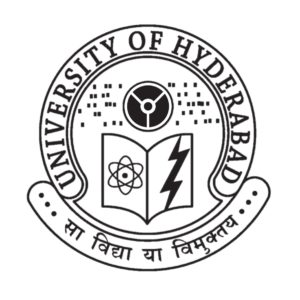 Prof Vinod Pavarala, head of Unesco chair on community media at UoH said, “After the capacity-building wokshop in Hyderabad, participants will head back to their stations and make 100 hours of radio programmes collectively. The set of themes should be related to voter education in over 10 different languages, including Assamese, Bengali, Gujarati, Hindi, Kannada, Malayalam, Marathi, Odia, Punjabi, Telugu and Urdu.”
Prof Vinod Pavarala, head of Unesco chair on community media at UoH said, “After the capacity-building wokshop in Hyderabad, participants will head back to their stations and make 100 hours of radio programmes collectively. The set of themes should be related to voter education in over 10 different languages, including Assamese, Bengali, Gujarati, Hindi, Kannada, Malayalam, Marathi, Odia, Punjabi, Telugu and Urdu.”
The chosen 25 community radio stations will cover a total 75 stations and their sizeable audience by sharing their content with two other stations in their respective regions. The UoH will help in the production and even closely monitor the content that will be aired on these community radio stations.
ICSI announces CS foundation exam 2017 results
The Institute of Company Secretaries of India (ICSI) has declared the result of Company Secretaries (CS) Foundation Programme Examination on Thursday.
Candidates appeared in the exam can check their results on the official website: icsi.examresults.net.The computer-based exam was conducted in December last year.
Garima Vaish from Delhi and Indore’s Qasim Saif jointly share AIR 1 for the ICSI CS Foundation programme. A total of 395 students have registered top 25 ranks.
ICSI will also release the subject-wise break up of marks and marks statement soon. It is to note that no physical copy of the result-cum-marks statement will be issued by the ICSI.
ICSI CS foundation result 2017, steps to check icsi.edu
Step 1: Log in to official website
Step 2: Click on the link for result
Step 3: Enter the required details in the provided fields and click on submit
Step 4: Your result will be displayed on the screen
Step 5: Download the same and take a printout for future reference
To pass the foundation programme, candidates are required to secure a minimum of 40 per cent marks in each paper, i.e. Paper-1, Paper-2, Paper-3 and Paper-4 separately and also required to score 50 per cent marks in aggregate.
Birla Open Minds School Facilitating Progressive Education
We follow thematic curriculum which is developmentally appropriate and based on the best practices in the field of early childhood care and education, says Pratima Sinha, CEO, DSR Educational Society, in an interview with Elets News Network (ENN).
What is the genesis behind DSR Education Society? How is society planning to contribute in transforming the Indian education ecosystem?

DSR Educational Society has prepared a stage where students learn to question not just out of curiosity rather to be a part of the change that the world awaits. The society in association with the Birla Edutech Limited has formed Birla Open Minds International School. With an avant-garde curriculum structure, learning at Birla Open Minds stays in tune with the changing needs of the world we live in.
What are the educational practices adopted by schools and preschools under DSR’s umbrella to develop a high-quality education system?
The society has integrated various best practices from the well researched IB, Cambridge, Montessori and Walldorf curriculums in the primary and middle-school years. The innovative practices include:
- Providing a curriculum that is activity-based wherein students get hands on training in every subject.
- Learning is not restricted to the classrooms. Students are allowed to use open-space of the school to enhance their learning.
- The school has special programmes to enhance students’ practical understanding in English, Science and Mathematics.
- These programmes nurture students with skills required to be successful in the rapidly transforming world.
- Students are trained in 21st century skills required for them to understand the dynamics of the world.
- Integrated Learning Studies is an in-house programme of Birla Open Minds, Hyderabad, which unites a topic to its counterpart in Science, Mathematics, Social Sciences, and English.
In the rapidly evolving education system across the globe, how Birla Open Minds Preschools and Schools are using technology to impart education at par with global standards?
The advancement in technology is so rapid that it is nothing less than a race and therefore it’s a challenge for every school to stay ahead of the curve. Whether it is about exploring the ideas on data interpretations or an enhanced understanding of Artificial Intelligence or Cloud Computing, DSR education society still leaves a mark. Our students are introduced to the world of Robotics and about creating principles that can help create fail-safe algorithms for its use.
Also Read: Birla Open Minds Preschool: Nurturing India’s Tomorrow
What curriculum related innovations are adopted by the schools?
DSR Educational Society has adopted BEL curriculum. IT is developed by eminent psychologists and industry experts. It takes into account the progressive growth of the child and provides theme-based curriculum to nurture a child’s academic and socio-cultural intellect. The theme is universal and at the core across the scholastic and co-scholastic planning. The curriculum is designed to entice the students with curiosity to take a plunge in studies and explore with deep interest.
Industrial Revolution 4.0 is all set to occur in a big way soon, what can be its impact on the Indian education system?
Learning to thrive in a transforming world needs to be the USP of the education system today. This revolution for sure is going to create new job profiles which were unknown till now. The question is are we prepared for such rapid changes, are we as educationist giving this a serious thought? Yes, Indian Education System is not far behind, it understands the need of the hour, the new skills that need to be imbibed in the future generation to be able to take on the Industrial Revolution 4.0 with ease.
Government to digitise 9 lakh classrooms by 2022: Prakash Javadekar
The Ministry for Human Resource Development (MHRD) is likely to digitise 9 lakh classrooms in schools and colleges across the country by 2022.
MHRD has launched “Operation Digital Blackboard” on Wednesday, under which the aforesaid number of classrooms will be equipped with digital facilities.
“Some 60-70 years back there was an ‘Operation Blackboard’ because that was the need of the hour then. But the country has progressed over the years, and now we need an Operation Digital Blackboard,” Union Minister for Human Resource Development Prakash Javadekar said during the launch.
Last year, a committee under Professor Ashok Jhunjhunwala of IIT Madras was formed by MHRD to analyse the need of digital blackboards in schools/colleges.
Emphasising the need for digital modes of education to improve the quality of education, Javadekar said, “The committee assessed a requirement for seven lakh digital blackboards in classes 9-12, and two lakh for classes in higher education institutions.”
He said that “The Government will work towards providing all these classes with facilities for digital boards by 2022, starting from the 75th anniversary of the country’s independence,” Javadekar added.
GATE 2019 answer key released by IIT Madras
Indian Institute of Technology Madras (IITM) has released the answer keys for Graduate Aptitude Test in Engineering (GATE) on the official website: gate.iitm.ac.in.
Candidates appeared in the GATE 2019 can check the same by visiting the official website. GATE 2019 was conducted on February 2, 3, 9, and 10, 2019.
GATE is conducted every year for the candidates aspiring for enrolment to master’s and direct doctoral programmes in engineering, technology, architecture and in other branches of science at Indian Institute of Science and all IITs.
GATE 2019 Answer Keys: Steps to Check
Step 1: Log on to the official website mentioned above
Step 2: Click on the link for the answer keys
Step 3: Click on the relevant subject’s answer key link
Step 4: A PDF file will open displaying the answer key
Step 5: Download the file and take a printout for future reference
Candidates appeared in GATE 2019 Exam will get three-days to submit their representations to GATE
Answer Key. The candidates will be able to challenge the answer key from February 21 to 23.
IIT-Madras will announce GATE 2019 Results on March 17. The scorecard will be made available for
qualified candidates from 20 March to 31 May.
IIT Kharagpur to introduce full scholarship programme for SAARC nationals
The Indian Institute of Technology, Kharagpur (IIT-KGP) is soon going to launch a scholarship programme for South Asian Association for Regional Cooperation (SAARC) nationals.
 According to a press release by IIT-KGP, the scholarship programme by premier Indian engineering institute will be open for full time students studying in SAARC countries outside India across all levels of study – undergraduate, postgraduate and doctoral.
According to a press release by IIT-KGP, the scholarship programme by premier Indian engineering institute will be open for full time students studying in SAARC countries outside India across all levels of study – undergraduate, postgraduate and doctoral.
For the enrolment of students in summer and winter terms of 2019 opening up this month, IIT-KGP will reach out to universities and embassies of SAARC countries by its own as well as through the Ministry of External Affairs, the press release stated.
The institute is focusing on students from Bangladesh, Bhutan, Nepal, Sri Lanka and Maldives.
US-based alumnus of IIT-KGP and petrochemical industrialist Dr Asoke Dey Sarkar will fund the first batch of 10 students.
The first edition will provide funding for their airfare, tuition fee, living expenses, local transport as well as medical insurance.
Read Also: IIT-Kharagpur to launch course on Artificial Intelligence
“SAARC nations share a common heritage. We also share a common future and a common vision of prosperity. There are some excellent educational institutions in our neighbouring countries with students who are comparable to the best in the world,” said Prof Baidurya Bhattacharya, Dean – International Relations, IIT-KGP.
In addition to formal application, the students will be required to appear for a video interview. The courses would encompass all areas of engineering and technology, biosciences, social sciences, economics, management, law.
Students can also work on research projects including collaborative research with international partners of IIT Kharagpur which will include areas such as artificial intelligence, robotics, climate change, high- speed and intelligent transportation, affordable healthcare, clean energy, etc, the release added.
Digital Consortium: Enriching Lives through Digital Transformation
Digital Consortium is one of the fastest growing start-up incubated at T-Hub, the technology incubation centre of Telangana. Praveen G Kumar, CEO, Digital Consortium (DC), explains about organisation’s focus areas and strategy in conversation with Elets News Network (ENN).
How has been the journey of the organisation so far?

Digital Consortium is powered by group of domain experts from various industries. We believe that we are in the business of building trust and delighting customers through digital transformation. We support customers to leverage the power of digital innovations and achieve their business goals. Through our extensive partnerships and technology portfolio, we help enterprises setup and modernise a flexible, automated and easy to manage IT infrastructure.
Please describe about the key technology portfolios of the organisation.
Our organisation’s Secured Documents as a Service (SDaS) supports key sectors such as education and government to create smart, fraud resistant documents by standardising the advanced security features and adding layers of security. The technology also support secured UV Printing including Ghost Image, variable Data Watermarking etc, on a non-tearable, water-proof and eco-friendly paper through in-house security printers.
We are also adding the MicroChip enabled smart document as part of our secured documents portfolio so as to create next generation tamper proof documents through an additional layer of security on physical documents. The secured documents are powered by the Blockchain anchored digital verification platform for the validation of the document’s authenticity.
In line with current digital trends, what are company’s plans?
We are keen to be part of the Digital India vision and in this regard, we along with our technology partners are collaborating with various government bodies and universities across India to standardise and enhance the security features. These features are similar to that of passports and provide the high secured tamper proof document solutions powered with the block chain anchored digital verification platform.
Please brief on company’s innovative solutions relevant for education sector.
Keeping in view of the current system challenges in examination process, we along with our technology partner Innoworx would soon be bringing the Digital Paper Experience for universities and students through our proposed framework TAPE – Tablet Aided Paperless Examination. in the current scenario, huge printing and logistics costs are involved along with environmental threats, challenges on data security, leakage threat, evaluation errors etc. The proposed paperless solution would give universities freedom from QP tagging, barcoding, manual data entry, eliminate human errors while evaluation, ensure faster result declaration through analytics, and ensure encrypted question paper delivery with huge cost saving.
We are also focusing on the new revolutionary High-speed facial recognition platform in attendance capturing system and also to automate the visitor management system at the Campus. We are keen to transform the biometric and manual visitor entry process. facial registrations can be managed through systems or through mobile/Tablet in real-time. Data can be captured even through Kiosks while walking through them. facial biometrics is quickly becoming a popular choice across the world and can be the perfect choice in the education vertical.
How does your organisation make a difference for its customers?
Our deep understanding of the industry challenges combined with our Partner Ecosystem which includes the world’s leading technology companies and industry leaders enables us to deliver the most innovative and futuristic ICT solutions by adopting the industry best practices.







